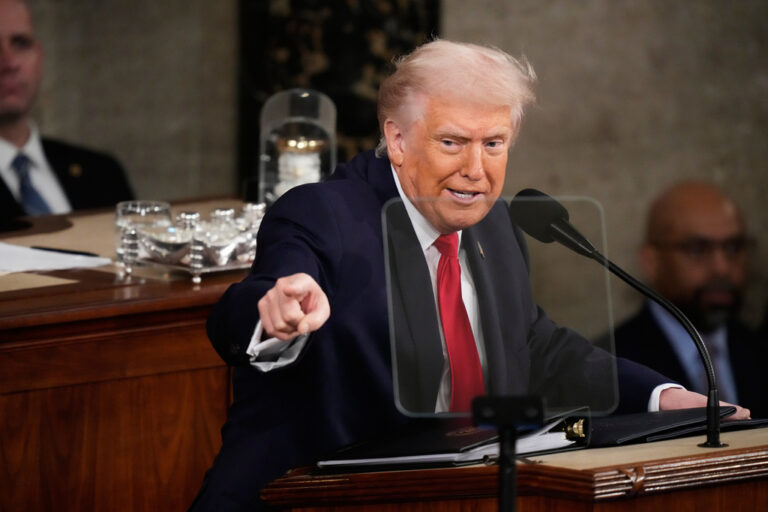 The nation’s major health insurers are barreling into a third year of record profits, enriched in recent months by a lingering recessionary mind-set among Americans who are postponing or forgoing medical care.
The nation’s major health insurers are barreling into a third year of record profits, enriched in recent months by a lingering recessionary mind-set among Americans who are postponing or forgoing medical care.
The UnitedHealth Group, one of the largest commercial insurers, told analysts that so far this year, insured hospital stays actually decreased in some instances. In reporting its earnings last week, Cigna, another insurer, talked about the “low level” of medical use.
Yet the companies continue to press for higher premiums, even though their reserve coffers are flush with profits and shareholders have been rewarded with new dividends. Many defend proposed double-digit increases in the rates they charge, citing a need for protection against any sudden uptick in demand once people have more money to spend on their health, as well as the rising price of care.
Even with a halting economic recovery, doctors and others say many people are still extremely budget-conscious, signaling the possibility of a fundamental change in Americans’ appetite for health care.
“I am noticing my patients with insurance are more interested in costs,” said Dr. Jim King, a family practice physician in rural Tennessee. “Gas prices are going up, food prices are going up. They are deciding to put some of their health care off.” A patient might decide not to drive the 50 miles necessary to see a specialist because of the cost of gas, he said.
But Dr. King said patients were also being more thoughtful about their needs. Fewer are asking for an MRI as soon as they have a bad headache. “People are realizing that this is my money, even if I’m not writing a check,” he said.
For someone like Shannon Hardin of California, whose hours at a grocery store have been erratic, there is simply no spare cash to see the doctor when she isn’t feeling well or to get the $350 dental crowns she has been putting off since last year. Even with insurance, she said, “I can’t afford to use it.” Delaying care could keep utilization rates for insurers low through the rest of the year, according to Charles Boorady, an analyst for Credit Suisse. “The big question is whether it is going to stay weak or bounce back,” he said. “Nobody knows.”
Significant increases in how much people have to pay for their medical care may prevent a solid rebound. In recent years, many employers have sharply reduced benefits, while raising deductibles and co-payments so people have to reach deeper into their pockets.
In 2010, about 10 percent of people covered by their employer had a deductible of at least $2,000, according to the Kaiser Family Foundation, a nonprofit research group, compared with just 5 percent of covered workers in 2008.
Doctors, for one, say patients’ attitudes are changing. “Because it’s from Dollar 1 to Dollar 2,000, they are being really conscious of how they spend their money,” said Dr. James Applegate, a family physician in Grand Rapids, Mich. For example, patients question the need for annual blood work.
High deductibles also can be daunting. David Welch, a nurse in California whose policy has a $4,000 deductible, said he was surprised to realize he had delayed going to the dermatologist, even though he had a history of skin cancer. Mr. Welch, who has been a supporter of the need to overhaul insurance industry practices for the California Nurses Association union, said he hoped his medical training would help him determine when to go to the doctor. “I underestimated how much that cost would affect my behavior,” he said.











6 Responses
Its time for Universal Healthcare. Israel, Canada and the rest of the western world has it. Its time that the USA sees that its current system is broken beyond repair.
More evidence that free markets simply don’t work in health insurance.
The Insurance companies argue that they have to protect against sudden upsurges. So may I suggest that they lower premiums until if and when a sudden upsurge arises and then they can “suddenly” raise premiums as they have been so well known to do in the past.
charliehall,
What free markets? The regulators have killed the competition! How many real choices do you have between insurance companies? I have only one.
crazykanoiy,
Canadians have it so good? Many emergency surgeries are placed on a long waiting list for months. Canadians often have to come to the US for treatment. Besides, they don’t pay for the old and the sick. It’s much cheaper. Do you want your grandmother’s life to depend on some politicians decision?
Who pays for Universal Healthcare? Tax dollars. Therefore the politicians and bureaucrats who run these programs are always looking to cut costs. What they often end up doing is to limit doctors pay. This way they can say that they didn’t cut any benefits. What really happens is that less people become doctors. This in turn means long waiting lists of people who need treatment.
Sorry #1 etc., but it is NOT time for universal healthcare. You think its so good but wherever they have it, once its all said and done, they pay TWICE the taxes we do! When its your life, or you momma’s life, or your daddy’s life being snuffed out becausue the Federal “healthcare” Fund doesnt want to pay for a procedure DONT come crying to me, because I tried talking sense into you and you were too foolish to listen.
Canada has it which is why when somone needs something pronto, they come here. Same with DibLand! A relative in EY went to the health clinic because she caught her hand in a mixer. They did a HORRIBLE job cleaning the wound! They didnt have any splints there! HELLLLLOOOOOOO!!! SOMETHING IS WRONG HERE!!!!!!!!
FORCED Health Insurance is a VIOLATION of the Constitution.
“The regulators have killed the competition! How many real choices do you have between insurance companies?”
Excuse me, but there are thousands of health insurers in the US. Your employer probably picked only one. Blame your employer, not the government.
“Many emergency surgeries are placed on a long waiting list for months. ”
This is a LIE. The waits for emergency care in Canada are SHORTER than in much of the US with its jammed emergency departments. There are often long waits for ELECTIVE surgeries in Canada, not emergency surgeries.
“Besides, they don’t pay for the old and the sick.”
Also a LIE.
“Do you want your grandmother’s life to depend on some politicians decision?”
Your grandmother in the US probably has Medicare, which is dependent on politicians’ decisions.
“What really happens is that less people become doctors.”
This is a third LIE. The supply of doctors is constrained not by compensation but by the limited number of postgraduate medical education slots, and to a lesser extent by the number of slots in medical schools. And both have been increasing dramatically in recent years. There continue to be far more qualified applicants for medical school than there are slots even though physician compensation has dramatically decreased thanks to the insurers.